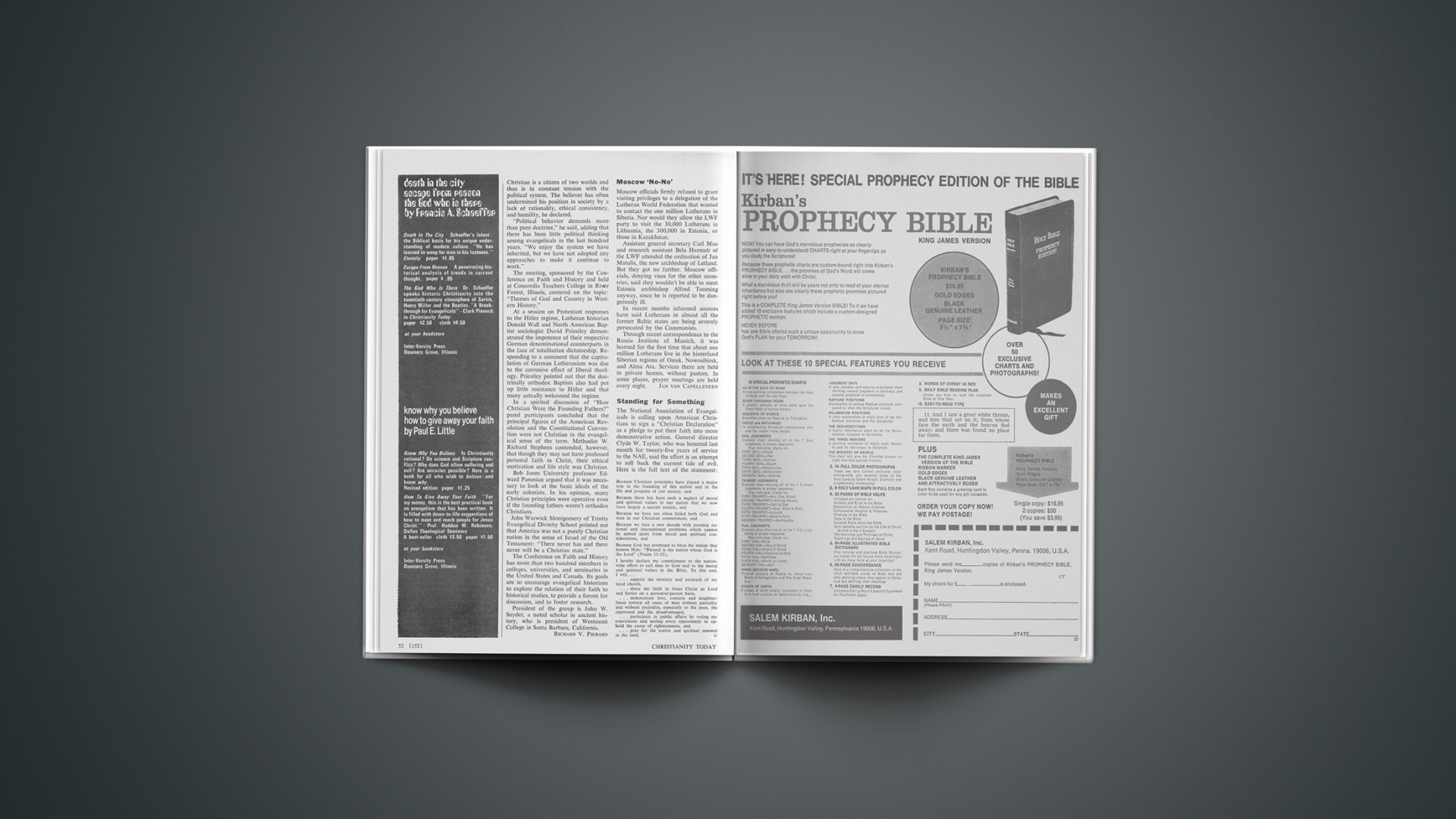Two Churches of Christ groups are looking for ways to make sweet music together. But disagreement on whether the Bible sanctions the use of instrumental music in worship services thus far has muted harmony between the 2.3 million member Churches of Christ (non-instrumental), and the approximately one million members of the Undenominational Fellowship of Christian Churches and Churches of Christ (instrumental).
Thirty leaders—fifteen from each communion—met in September in St. Louis, following unity talks held in June in Memphis and other cities.
The Memphis and St. Louis meetings were prompted by an editorial by Reuel Lemmons in Firm Foundation, a doctrinal journal read widely among members of the non-instrumental Churches of Christ. Discussion participants, however, represented a wide spectrum of views.
J. W. Roberts, professor of Bible at Abilene Christian College (Churches of Christ), called the meetings “fruitful” because the two groups discovered they have much in common, including, among other things, agreement on the plan of salvation, evangelism methods, most doctrinal questions, independent organization of congregations, and worship (except music). The biggest difference was over the use of instruments.
Roberts emphasized that neither side discussed concessions, but tentative plans were made for another meeting in Los Angeles, and the possibility of exchanging lecturers was presented.
Since both groups follow congregationalism, unity moves must be carried out by local churches. In Amarillo, Texas, for example, eight meetings have been held by the two communions, and the Amarillo churches could unite even if leaders elsewhere reject the idea. But any decision by the thirty leaders—who include influential writers, professors, and evangelists from the two groups—would carry much weight at the congregational level.
Unity discussions began after a decision in 1968 by the Christian Church (Disciples of Christ) to restructure itself into a denomination. When individual congregations were given an opportunity to choose membership in the denomination, about 7,000 congregations with a membership of more than one million severed all ties and formed the Undenominational Fellowship.
MARQUITA MOSS










